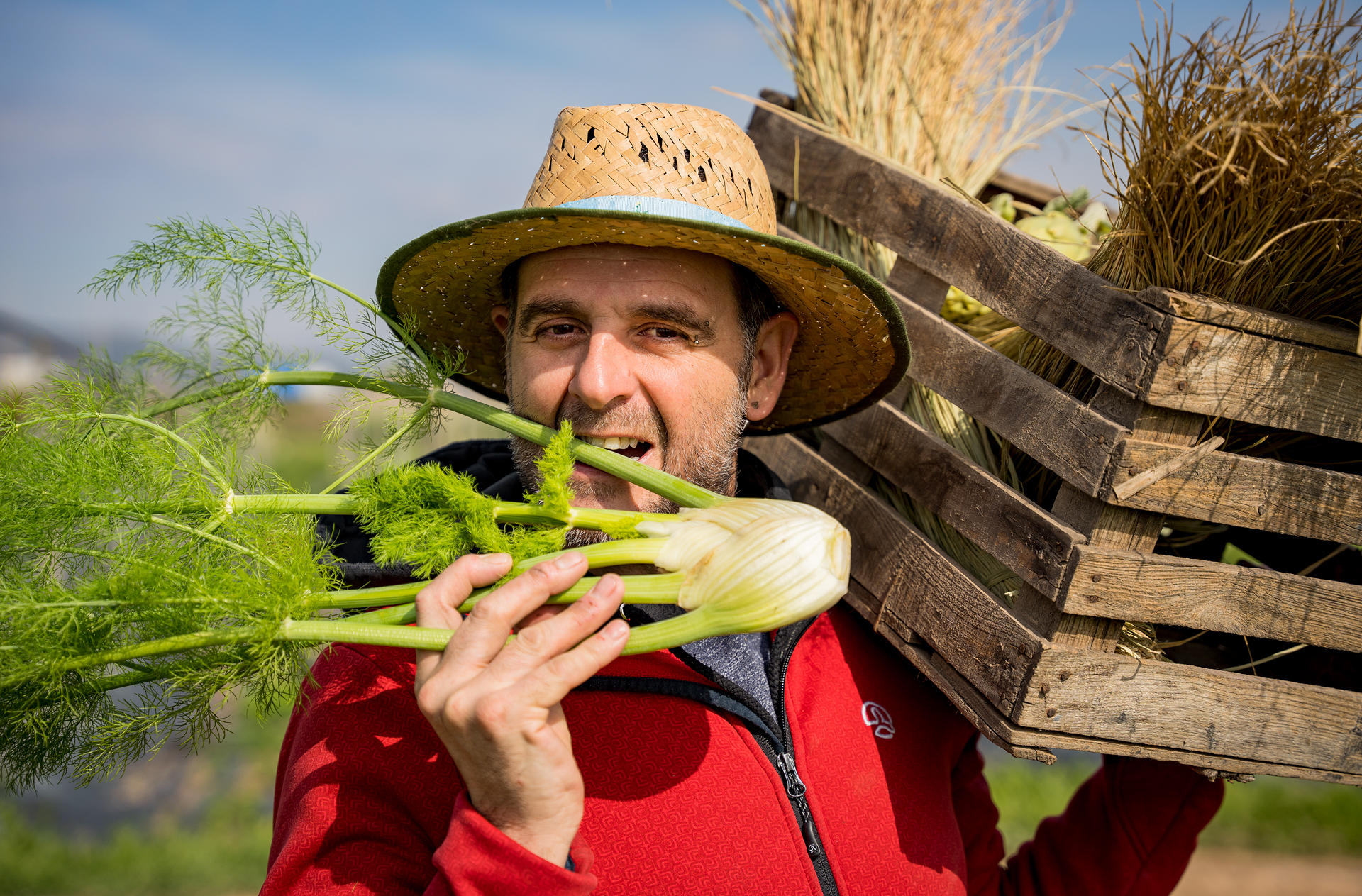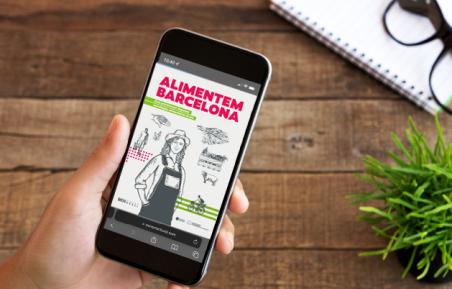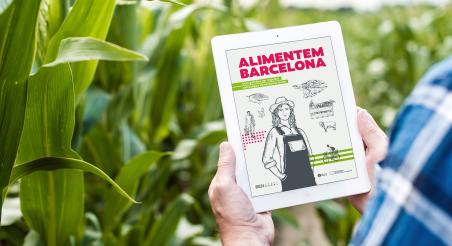Next November 10, 2022, at the headquarters of the Baix Llobregat Agrarian Park, the first 'Feeding Barcelona' session will be held. Driven by the Barcelona Provincial Council within the framework of BCN Smart Rural, the event aims to encourage the creation of local food policies and promote healthier, sustainable and safer food in the territory.
Food is a fundamental need of people, and guaranteeing its supply is a duty of governments. But, although Catalonia has had a national food strategy since 2021, there is currently no town or city in the Barcelona regions that has an approved food strategy and is in the process of being implemented. Why? Is the delay in policies that reduce severe food dependence from abroad caused by a lack of food planning at the local level or by a lack of awareness of the fragility of the current food model? And what impact does it have on the food available to us? Is access to healthy, sustainable and safe food guaranteed for the general population or is it and will it only be affordable for certain segments of the public?
To try to answer these questions, the Territorial Agrarian Directorate of the Barcelona Provincial Council is organizing a session to help local bodies that wish to guarantee the supply of local food to the population and to highlight the best food strategies implemented at municipal, regional and state level and international
A day of analysis and dialogue
The event will be inaugurated by Valentí Junyent, deputy representative of Mobility, Natural Areas and Forest Fire Prevention of the Barcelona Provincial Council, who will be accompanied by Eva Martínez, president of the Baix Llobregat Agrarian Park Consortium, and Laia Camps, technical coordinator of the Catalan Food Council of the Department of Climate Action, Food and Rural Agenda of the Generalitat of Catalonia.
Next, three experts will reflect on the state of food systems on a global scale and their impact on a local scale. The first to speak will be Fernando Fernàndez, director general of Agriculture, Livestock and Rural Development of the Government of the Balearic Islands, who will talk about the climate emergency and its consequences in terms of food production. Oriol Estela, general coordinator of the Barcelona Metropolitan Strategic Plan (PEMB), will address the importance of not improvising with food. And Josep Carles Vicente, member of the National Permanent Commission of the Union of Farmers, will reflect on whether or not Barcelona is peasant land.
During the second part of the event, the digital publication 'Feeding Barcelona' will be presented, a practical guide to help local bodies that wish to supply their population with local products. With photographs by Patxi Uriz, the publication is the result of the joint and transversal work of three experts in the field: Sònia Callau, head of the Agricultural Territorial Directorate of the Barcelona Provincial Council and coordinator of the BCN Smart Rural strategy; Josep Montasell, co-founder and first director of the Baix Llobregat Agrarian Park; and Anna Roca, professor at the University of Girona and consultant for agri-food revitalization projects.
The third part of the day will serve to highlight some of the actions that are already being carried out from the public and institutional levels to positively transform the food system in the Barcelona regions. Representing the citizens' action will be Joan Coll, member of the Xarxa Pagesa; Marc Talavera, president of the Eixarcolant Collective; Xavier Barniol, technical director of the Lluçanès Consortium and one of the promoters of Quall, the first collective cheese dairy in Catalonia; Alejandro Guzmán, chef and founder of Ecocentral; Salomó Torres, president of Hortec; Alba Rojas, coordinator of the Central Catalonia Cooperative Atheneum and partner of SuperCoop Manresa; and Raquel Díaz, director of the Espigoladors Foundation. As representatives of the institutional action, the session will have the participation of service managers from the Barcelona Provincial Council who are directly or indirectly related to the creation of local and supra-municipal food strategies: Guida Obrador, manager of Public Health and Consumer Services, will speak; Xavier Font, head of the Technical Tourism Office; Rosabel Hernández, head of the Local Productive Fabric Support Section; Josep Antoni Báguena, head of Territorial Analysis and Prospective; Carles Castell, responsible for Monitoring Environmental Programs and Actions; and Helena Perxacs, manager of the Baix Llobregat Agrarian Park.
The 'Feeding Barcelona' session will culminate with a talk by Jaume Minguell, head of the Office of Municipal Forest Fire Prevention and Agrarian Development of the Barcelona Provincial Council, who will specify the resources offered by the corporation to local entities that want to design and implement food strategies in their municipalities.
This session is organized by the BCN Smart Rural strategy, a project co-financed by the Barcelona Provincial Council and the FEDER funds of the European Union.
For more information about the first day to promote local food policies, please contact Sònia Callau, head of the Territorial Agrarian Directorate of the Barcelona Provincial Council.
— BCN Smart Rural Editorial —




